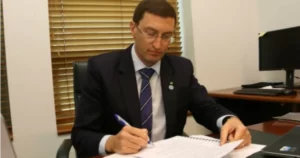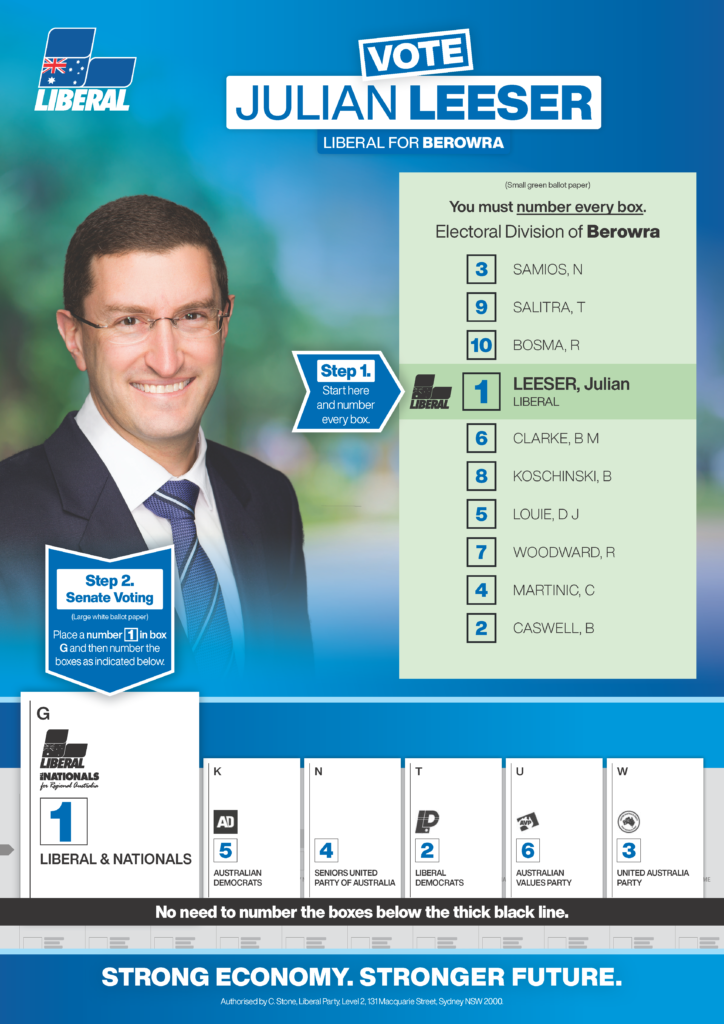Today we think of the 1,200 men, women and children, citizens of more than 30 countries, who were slaughtered by Hamas in the largest murder of Jewish people on a single day since the Holocaust.
We think of babies being slaughtered in their cots. We think of women and girls being raped. The depravity is almost incomprehensible, but for some it seems not worth mentioning. To some in our own country it has been a point of elation.
The number 1,200 does not do justice to the lives of the people. Today we think of those who perished.
We think of Eli, who was 42. When the attacks started, his sister phoned him from the Nova Music Festival. She urged him to stay away, but he set out to try to find her. He died attempting to save his sister, whose body was found several days later.
We think of Margarita, who was 21. She loved art. Three days after her murder, alongside her boyfriend, Simon, her family received notice that she had passed the entrance exam for her studies to become a doctor, something she had always dreamed of.
Nitikorn ‘Lee’ Sae Wang was 26. Lee was from Chiang Rai, in Thailand. He had borrowed money to travel to Israel to earn money for his family so they could start a new life. He was murdered before he even got a chance to meet his son, to whom he was trying to give a better life.
Yehudit was born in 1947 in a displaced persons camp for Holocaust survivors. She loved Barbara Streisand and Dolly Parton. On the morning of October 7, she hid in her home. The last message she sent was a heart emoji to her grandson. Her body was found in her garden, where she had been dragged before being slaughtered.
Last night I attended the communal commemoration in Sydney, an extraordinary night of Australians peacefully mourning the loss of lives of Jewish people around the world. Twelve thousand Australians—roughly one in four people in the Sydney Jewish community—were there.
I met the cousin of Naama Levy. We’ve all seen the pictures of Naama Levy. She was a 20-year-old triathlete and alumna of Hands of Peace, which promotes peace among Israeli and Palestinian youth. She volunteered for organisations like the Red Cross and the UN.
We haven’t seen pictures of her doing that, but we have seen the footage on our social media of Hamas dragging her from the boot of a vehicle, her hands bound and her sweatpants stained with blood, while her abductors chanted, ‘God is great!’
Naama Levy remains a hostage, along with 100 other people who were taken that day. They are somewhere under Gaza and still haven’t been returned. We must bring Naama and all the other hostages home now. These are the thoughts that we should be having today.
Last night the Leader of the Opposition received no fewer than four standing ovations for his speech. To the Jewish community of this country, the Leader of the Opposition has been heroic. He has been thoroughly clear not only on the terrible attacks that occurred in Israel but on standing against antisemitism in this country and on continuing to stand with Israel, as a Western liberal democratic country in the Middle East.
Before the last election, senior Labor figures told the Jewish community in the Australian Jewish News that there would be no difference between Labor and the coalition on Israel and the Jewish community. As I’ve said, no greater falsehood has ever been told in the history of Australian politics. Even before 7 October, we saw Labor changing votes at the United Nations; Labor returning funding to UNRWA, an organisation that has blood on its hands from 7 October; and Labor changing its recognition of the capital of Israel. And we’ve seen that line continue since today.
The Leader of the Opposition is right about the origin of this motion. I know he’s right because he consulted me before he put the words for this motion to the Prime Minister.
The motion that the Leader of the Opposition came up with was a good motion. It was a motion that could have achieved bipartisan support.
What do you do to achieve bipartisan support? You recognise that this side of the House and that side of the House are coming from different perspectives on this issue.
You respect and acknowledge that difference, but you try to work through that difference, and, if you can’t work through that difference, you leave out words in the motion. Having in the motion the things you can agree on, not the things you can’t agree on.
I’m sorry that we don’t have the motion before the House that the Leader of the Opposition intended when he put forward a motion to the Prime Minister at the weekend. We wanted to see a bipartisan resolution, but there’s too much difference in what this motion suggests in relation to the foreign policy of each side of this House.
We can’t have a ceasefire at the moment that would allow terrorist organisations—that we list as terrorist organisations in our own country—to regroup and reform and continue to attack innocent civilians.
We can’t have a ceasefire when Iran continues to lob missiles into Israel, and the only reason that there haven’t been more casualties in Israel as a result of this is the Israeli defence systems.
We can’t have a ceasefire in Israel and the Middle East when the hostages have still not been returned.
We can’t have a ceasefire when organisations like Hamas and Hezbollah and countries like Iran refuse to recognise the right of the State of Israel to exist.
And we cannot be imposing a timetable in relation to a two-state solution without full and proper negotiations on the final-status issues.
To go to the United Nations at this time and make speeches which suggest that we should set a timetable today, in the wake of this terrorist activity and the terrorist attack that occurred 12 months ago, and in the wake of the continued rocket attacks, I think fails to read the room.
I don’t care, frankly, what other countries do. I care what we do as Australia because Australia has had a wonderful record of always standing with Israel, going back to the time of Doc Evatt, the former Leader of the Labor Party, who sat in the chair at the time that the State of Israel came into being.
On this side of the House we continue to stand with Israel because Israel is a Western liberal democratic nation that believes in the rules of law and respects human rights, including those of women, religious minorities and LGBTQI people—people who are not respected by any of these terrorist organisations, or by Iran, for that matter. It is right that our foreign policy should be based on those values, and we should not sacrifice those values at any point or at any time.
That’s why we on this side of the House cannot support the motion in its current form.
We wish we could.
We wish we could amend the motion.
We wish we could return to it the words that the Leader of the Opposition put to the Prime Minister over the weekend, because they were good words.
I think the other point that I want to make today is that the antisemitism that we have seen unleashed in our country since 7 October has been unprecedented.
The Prime Minister quoted Martin Luther King. Let me provide another Martin Luther King quote: ‘In the end, we don’t remember the words of our enemies, but the silence of our friends.’
Too many leaders have been silent and supine in the face of the antisemitism that we have seen in this country. They range from our political leaders, particularly the Greens political party, some of whom have aided and abetted and encouraged some of the antisemitic activity, to our police force, university leaders and the Human Rights Commission.
I put forward a Private Member’s Bill in June of this year to deal with what I regard as the epicentre of antisemitism in this country: universities. I put forward a Private Member’s Bill for a judicial inquiry into that fact.
It is a Bill that is supported by every major Jewish organisation in this country. It is a bill that is supported by the government’s own special envoy on antisemitism, Jillian Segal AO. It is a bill that is not opposed by the Human Rights Commission, which was the alternative place to send that inquiry, and it is a bill that is not opposed by the universities.
And yet this government refuses to adopt a judicial inquiry into antisemitism on Australian university campuses.
It is appalling that in this country, a country that has been unique in human history in being good to the Jewish people, this government refuses to stand with Jewish students, with Jewish staff and with the Jewish community on something that they’ve asked for.
To take the politics out of this issue and to ensure that we get to the truth of what’s been happening for decades on Australian university campuses, where some of these ideas about oppressors and the oppressed, and bad ideas about Israel and bad ideas about Jews are allowed to fester.
We can’t sit around here and let this continue to fester when we have an opportunity to do something about it. What we’ve seen with the antisemitism that has grown in this country is that it has grown because of the failure of too many leaders in this place to take action. It’s an antisemitism that began long before Israel’s retaliations and Israel’s operations in Gaza and it’s an antisemitism that continues to this day.
I’m sorry that we can’t vote for the motion, because this should be a day of unity. This should not be a day for petty politics.




